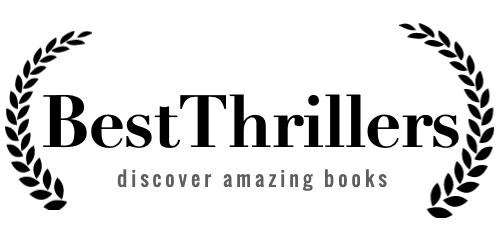The Bottom Line: Rigorously researched, this cold war political thriller crackles with high-stakes spycraft, corporate greed and the moral obligation to protect humanity.

Pushing Back the Desert opens in the 1950s, as New Yorker Claudine Demaureaux summons a group of highly educated friends dubbed the Six Sentinels. The group first became acquainted when they shared the same doctoral study group during World War II. Now successful bankers, winemakers, performers and spouses, the Sentinels are hardly anti-capitalism, but they are strongly antitrust. Having recently prevented a coalition of military contractors from manipulating the congressional appropriations process, their ongoing mission is to oppose “abusive agendas of concentrated power.”
As the group gathers at a Napa Valley vineyard, the current state of geopolitics in Iran is surfaced. They discuss an emerging “Anglo-American” scheme to topple Iran’s government, return the exiled shah to power, and take control of the country’s oil production. The Sentinels resolve to expose the plot and stop it. But the group’s ambitions don’t stop there. They also ponder embarking on a 15-year-plan to create “the Sentinel Institute,” which will graduate and train students capable of continuing their work after they retire from service.
Author Gordon Zuckerman has created a historically rich political thriller in which a group of elite thinkers acknowledge that government alone can’t protect the public. It’s a fascinating concept that is as timely now as ever, as conspiracy theories about so-called shadow governments – private individuals who exercise power behind the scenes, beyond the scrutiny of democratic institutions – are especially rampant.
Zuckerman tells the story from an omniscient perspective that enables the reader to assess the situation from multiple viewpoints, including that of the CIA. Zuckerman’s dialogue among intelligence operatives, such as CIA case officer/Ajax conspirator Kermit Roberts, is wholly believable as the talk turns to the shameless manipulation of individuals as if they were pawns on a chessboard (“All we need is one defection”). Even more fascinating is how western operatives attempt to describe foreign cultures through the lens of the cold war era (“We measure things in five-to-ten-year intervals. The Muslims are accustomed to thinking in terms of decades and centuries”).
The novel is rich with intrigue throughout, and its subject matter necessitates sprawl into humanitarian subjects such as farming, land ownership and geopolitical sustainability. One of the book’s most gripping scenes is a flashback to 1930s Palestine, where a future Sentinel battles for survival in a bunker within a kibbutz, hurling grenades at oncoming Arab invaders. Just minutes after the thwarted attack, a survivor asks, “It’s 1934. If militant Arab terrorists are so intent on driving the Jews out of Palestine, what kind of lesson should we be learning?” It’s a moment that is deliberately self-aware of the current political landscape, nearly breaking the narrative across the so-called “fourth wall.” Yet it perfectly justifies the need for the proposed Sentinel Institute. We can’t wait for the series’ second installment

